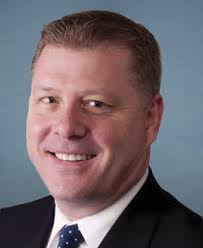Cuba Again Mentioned During Press Briefing At The White House
/THE WHITE HOUSE
Office of the Press Secretary
For Immediate Release
May 30, 2017
PRESS BRIEFING BY PRESS SECRETARY SEAN SPICER
James S. Brady Press Briefing Room
2:11 P.M. EDT
And my second question, I did want to mention that before he left to go abroad, the President praised Philippine President Duterte for his action against drug dealers and dealing with them. Various human rights groups have condemned President Duterte, saying that a lot of the executions of drug dealers have been done without trial. Does the President stand by his words of praise for the Philippine President?
MR. SPICER: I think the President recognizes the need to combat drugs, but he also believes in human rights. It's something that he’s worked with several countries -- it's one of the reasons that he’s reviewing the Cuba policy, et cetera. He wants -- human rights is something that’s very strong to him. It's something that he’s discussed in private with several countries.
Statements From The White House About Cuba.... Chronology
http://www.cubatrade.org/blog/2017/3/12/6rhpts5hb63h4xirou3am6ycrexpbk
THE WHITE HOUSE
Office of the Press Secretary
19 March 2017
Readout of the President’s Day
.... He spoke to President Michelle Bachelet of Chile to discuss our bilateral relationship, including our close cooperation on trade and security issues. President Trump expressed concern over the situation in Venezuela, and the leaders agreed on the importance of advancing democratic principles throughout the Western Hemisphere.
EFE
Washington, DC
8 March 2017
Excerpts from interview with Ms. Helen Aguirre Ferre, Special Assistant to the President and Director of Media Affairs at The White House....
"The president has been very clear that they are going to evaluate all the agreements that the prior administration (of Barack Obama) made with Cuba," said Aguirre Ferre, who is of Nicaraguan heritage.
...in Trump's judgment, "Cuba did not offer any concessions, with all that it was given in what has been the normalization and reestablishment of agreements and diplomatic behavior."
Cuba is hosting "fugitives from US justice, it has to turn over those people and also talk about the importance of free elections and free political prisoners," Aguirre Ferre said.
Trump's adviser avoided commenting on whether there has been any contact as yet between the Trump administration and Cuba, saying that that it a question for the State Department.
The White House
Office of the Press Secretary
For Immediate Release
16 February 2017
Remarks by President Trump in Press Conference
East Room
12:55 P.M. EST
THE PRESIDENT: ... We had dinner with Senator [Marco] Rubio [R-Florida] and his wife, who is, by the way, lovely. And we had a really good discussion about Cuba because we have very similar views on Cuba. And Cuba was very good to me in the Florida election as you know, the Cuban people, Americans.
The White House
Office of the Press Secretary
3 February 2017
Press Briefing
12:37 P.M. EST
Mr. Spicer: With that, I’m going to go my first Skype question seat. Jackie Nespral from NBC 6 in South Florida. Jackie.
Question: Good afternoon. On behalf of the viewers of South Florida, thanks so much for this opportunity. You know, a lot of focus on foreign affairs this week, a new sanctions announced today against Iran, and of course Miami, as you know, is home to the largest Cuban-American community in the country. And during the campaign, President Trump talked about his discontent with the warming of U.S.-Cuba relations implemented by President Obama. And in the last days of his administration, he ended the "wet foot, dry foot" policy, leaving thousands of Cubans in limbo.
So my question is twofold. A, has there been any contact between your administration and the Cuban government? And B, are there any plans to change the current policy right now?
Mr. Spicer: Thanks, Jackie. We are in the midst of a full review of all U.S. policies towards Cuba. The President is committed to an agenda of ensuring human rights for all citizens throughout the world. And as we review those policies in Cuba, that will be forefront in their policy discussions, but there is nothing that we have on that front at this point.
The White House
Office of the Press Secretary
Washington, DC
24 January 2017
Press Briefing
36:18 of 45:26
Question: Does the President have any plans to change US policy towards Cuba there are a lot of changes that took place during the last Administration and the Executive Orders as it relates to US-Cuba relations?
Mr. Spicer: I have to follow-up with you we've got nothing that we're ready to announce at this point.
Committee on Foreign Relations
United States Senate
Washington, DC
21 January 2017
Written answers by Mr. Rex Tillerson, nominee to be United States Secretary of State, as published by the Committee on Foreign Relations.
Question: Despite the Obama Administration’s controversial and misguided decision to normalize relations with Cuba and its hope that this could lead to improved governance and human rights, Cuban officials continue to arrest dissidents and violate the rights of citizens, and tourism revenues benefit only government officials and a small minority of the population. How do you plan to approach the United States’ relationship with Cuba? How will you support human rights defenders and democracy activists in Cuba? What bilateral and/or multilateral pressure will you exert to lessen authoritarian rule in Cuba?
Tillerson: If confirmed, I will engage with Cuba but continue to press for reform of its oppressive regime. I will support human rights defenders and democracy activists in Cuba, empower civil society, defend freedom of expression, and promote improved Internet access and I will ask our allies to do the same.
Will you continue to support programs that promote democratic voices and initiatives in Cuba like Radio and TV Marti?
Yes, if I am confirmed.
What steps will you take to pressure the Castro regime to return American political fugitives like New Jersey cop-killer Joanne Chesimard?
If confirmed, I will engage bilaterally and multilaterally to bring these fugitives to justice.
Will you work with the Treasury Department to ensure that no revenue from American businesses goes directly toward supporting the Cuban military and the regime?
Yes, if I am confirmed.
NOTE: On 9 June 2016, The Honorable Paul Ryan (R-WI), Speaker of the United States House of Representatives, issued a statement entitled, "Achieving U.S. Security Through Leadership & Liberty" The second paragraph of the document included this sentence: "A first step should be to ban financial transactions with the Cuban military." http://www.cubatrade.org/blog/2016/6/11/speaker-of-the-house-paul-ryan-wants-to-rescind-starwood-hotel-management-agreement?rq=Paul%20Ryan
What steps will you take to encourage the government of Cuba to release political prisoners, artists, journalists, and other Cubans being detained for politically-motivated reasons?
If confirmed, I will press Cuba to meet its pledge to become more democratic and consider placing conditions on trade or travel policies to motivate the release of political prisoners.
What steps will you take to promote judicial reform in Cuba?
I will work bilaterally and multilaterally to identify training and technical assistance opportunities to assist with judicial reform, if I am confirmed.
On October 12, 2016, PEOTUS Donald Trump stated, “The people of Cuba have struggled too long. Will reverse Obama’s Executive Orders and concessions towards Cuba until freedoms are restored.” Do you stand by PEOTUS Trump’s commitment to reverse the Obama Administration’s Cuba regulations until freedoms are restored on the island?
Yes. There will be a comprehensive review of current policies and executive orders regarding Cuba to determine how best to pressure Cuba to respect human rights and promote democratic changes.
On October 14, 2016, VPEOTUS Mike Pence reiterated this commitment by stating, “When Donald Trump and I take to the White House, we will reverse Barack Obama’s executive orders on Cuba.” Do you stand by VPEOTUS Pence’s commitment to reverse the Obama Administration’s Cuba regulations?
Yes, if I am confirmed.
United States Secretary of State Designate Rex Tillerson
United States Senate Committee on Foreign Relations
Confirmation Hearing Opening Statement
11 January 2017
Excerpts…..
Good morning.
I am honored to have the backing of Senator Cornyn and Senator Cruz from my home state of Texas. I also want to thank Senator Nunn for his commitment to nuclear non-proliferation, and Secretary Gates for his service to eight presidents and his own leadership as President of the Boy Scouts of America.
Chairman Corker, Ranking Member Cardin, and Members of the Committee, it is an honor to appear before you today as President-elect Trump’s nominee for Secretary of State and to seek the approval of this Committee and the full Senate for my confirmation.
But our leadership demands action specifically focused on improving the conditions of people the world over, utilizing both aid and economic sanctions as instruments of foreign policy when appropriate.
And we must adhere to standards of accountability. Our recent engagement with the government of Cuba was not accompanied by any significant concessions on human rights. We have not held them accountable for their conduct. Their leaders received much, while their people received little. That serves neither the interest of Cubans or Americans.
Abraham Lincoln declared that America is “the last best hope of Earth.” Our moral light must not go out if we are to remain an agent of freedom.











































